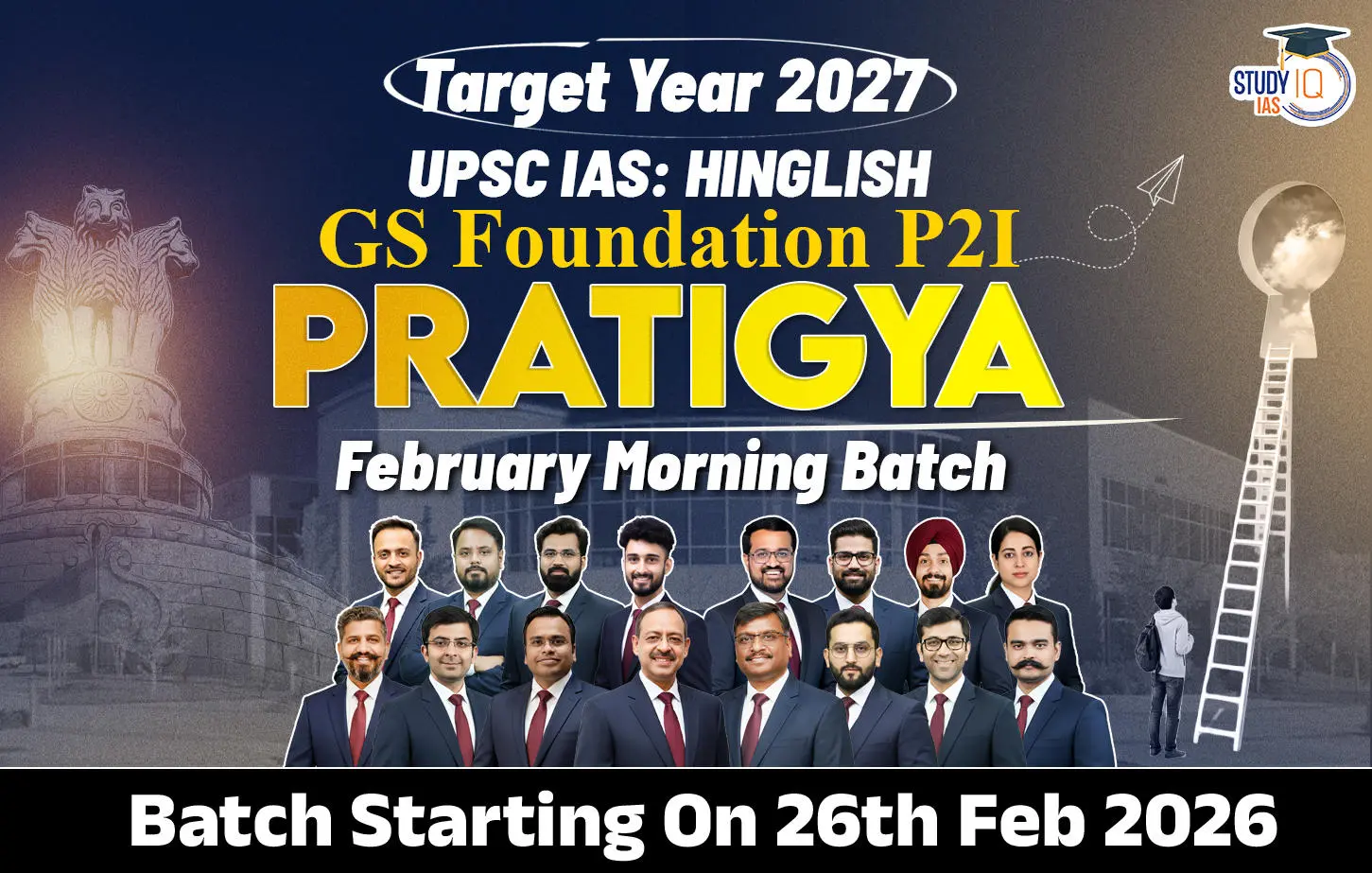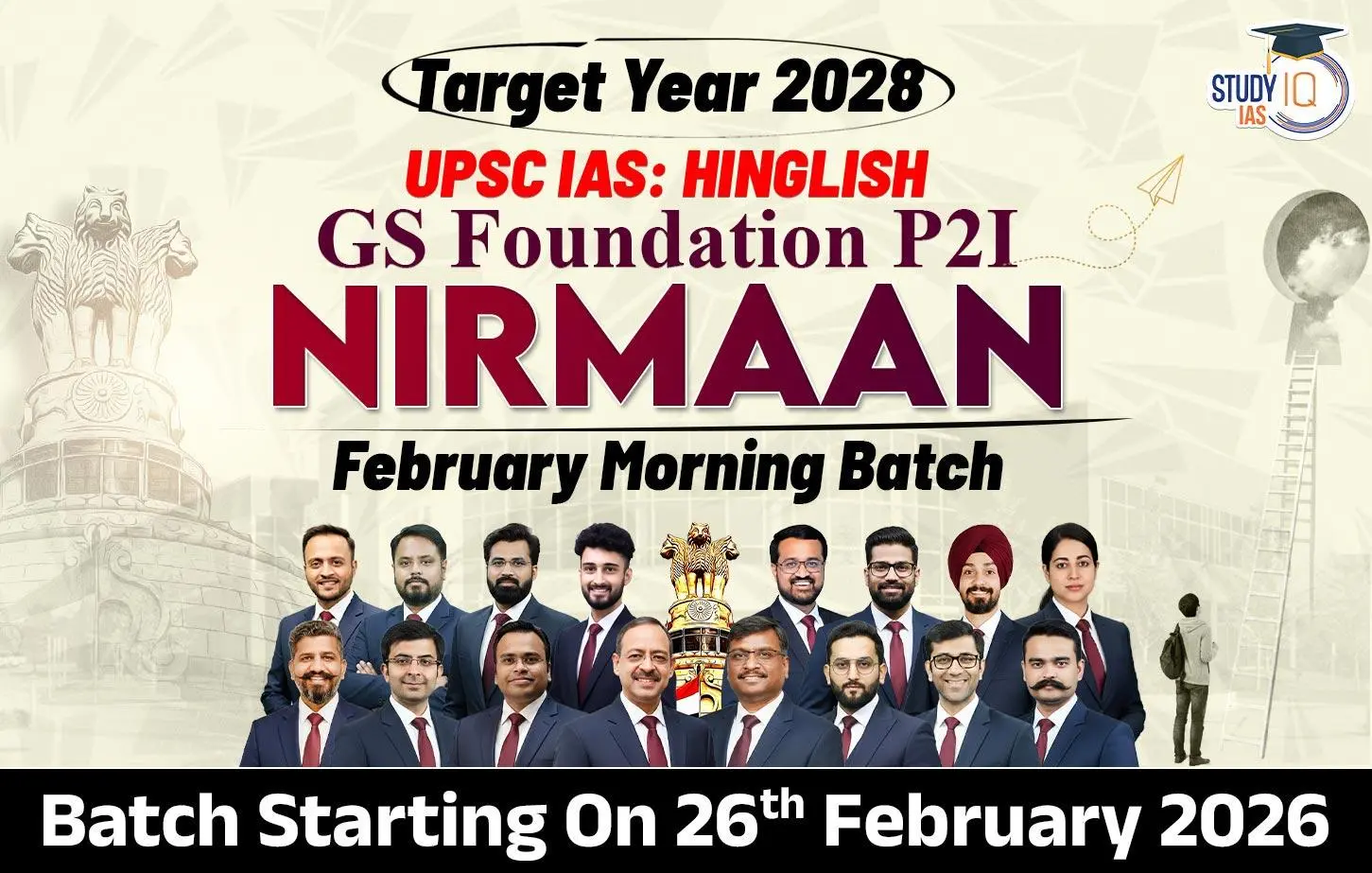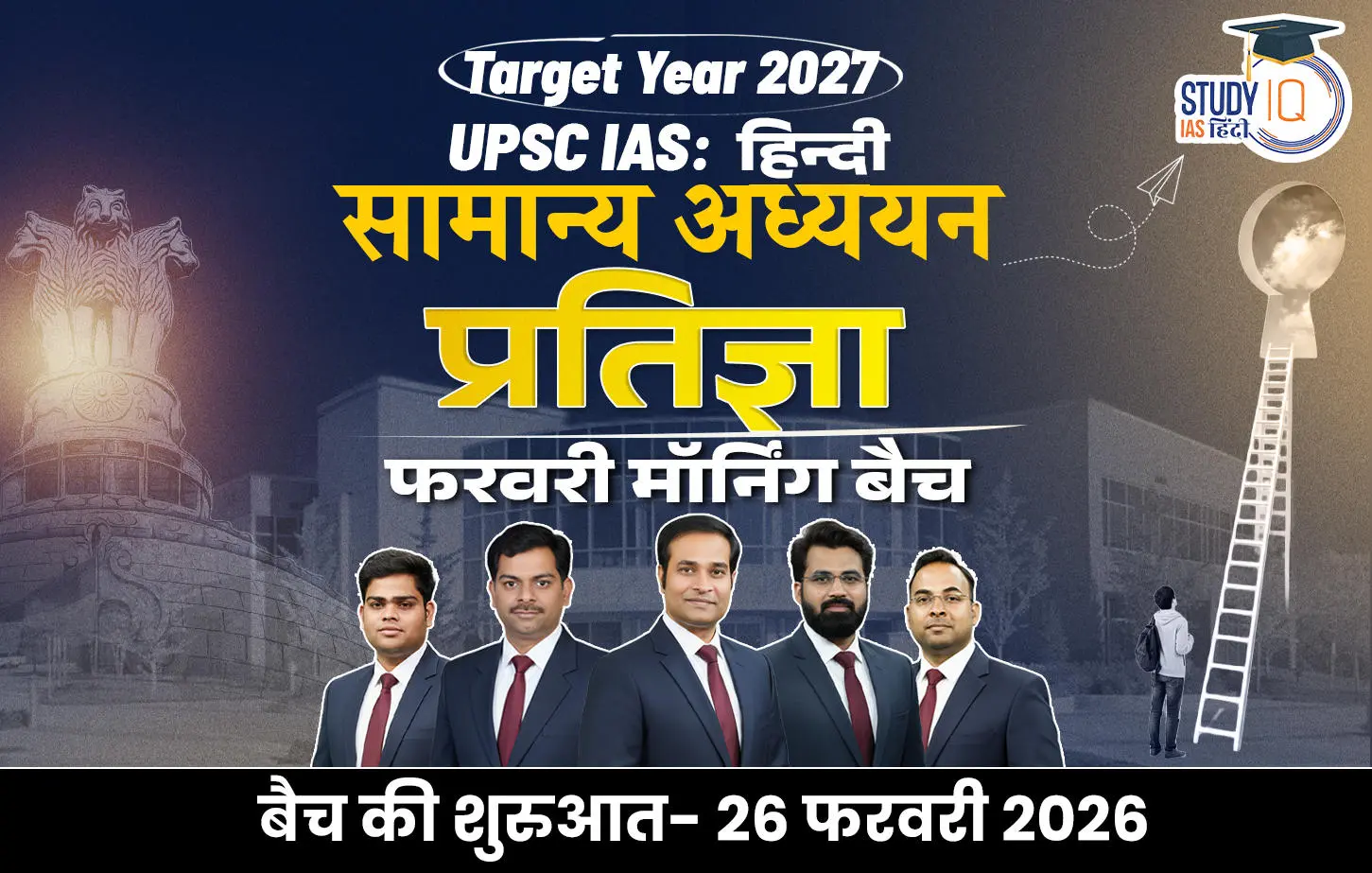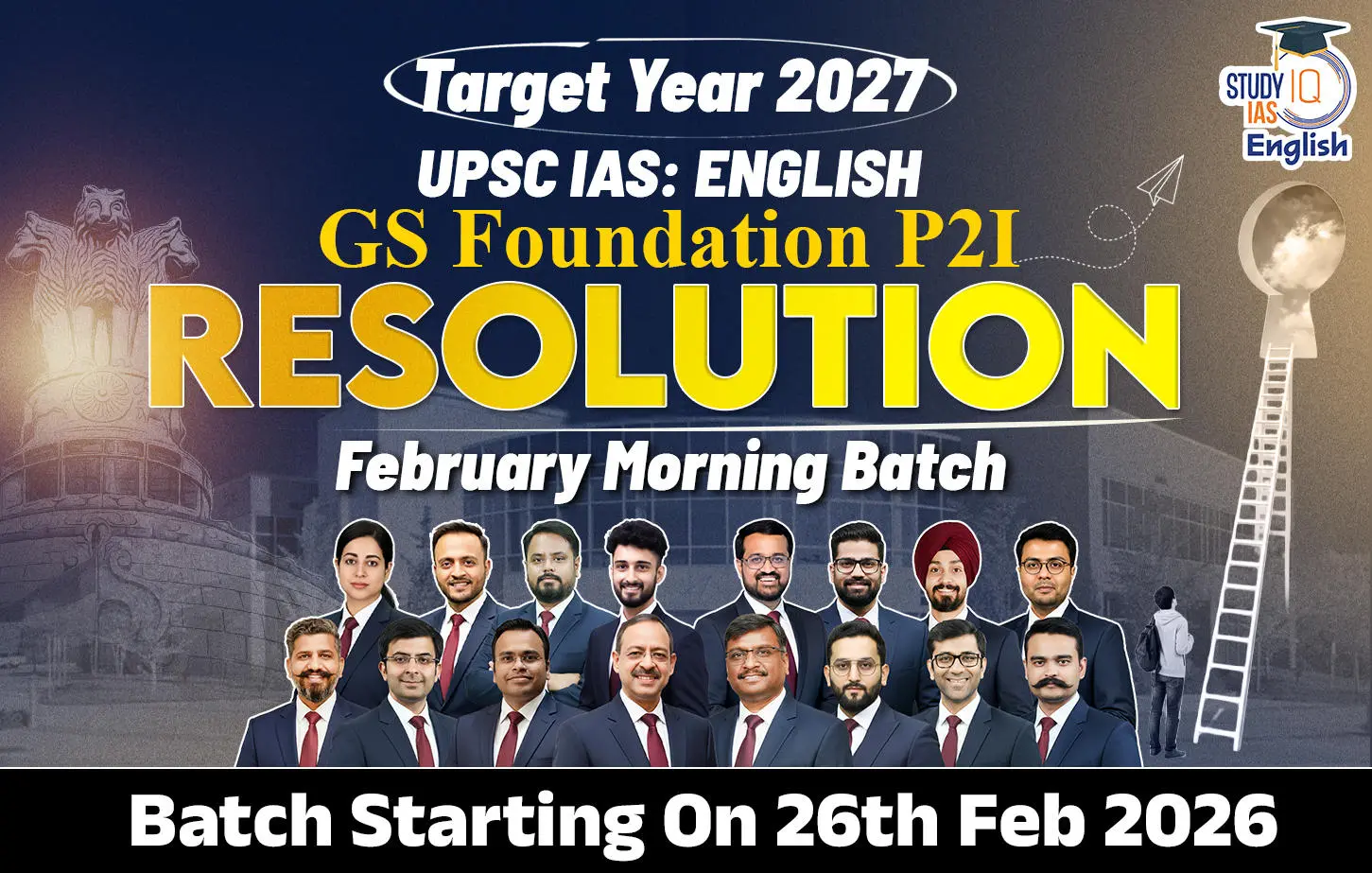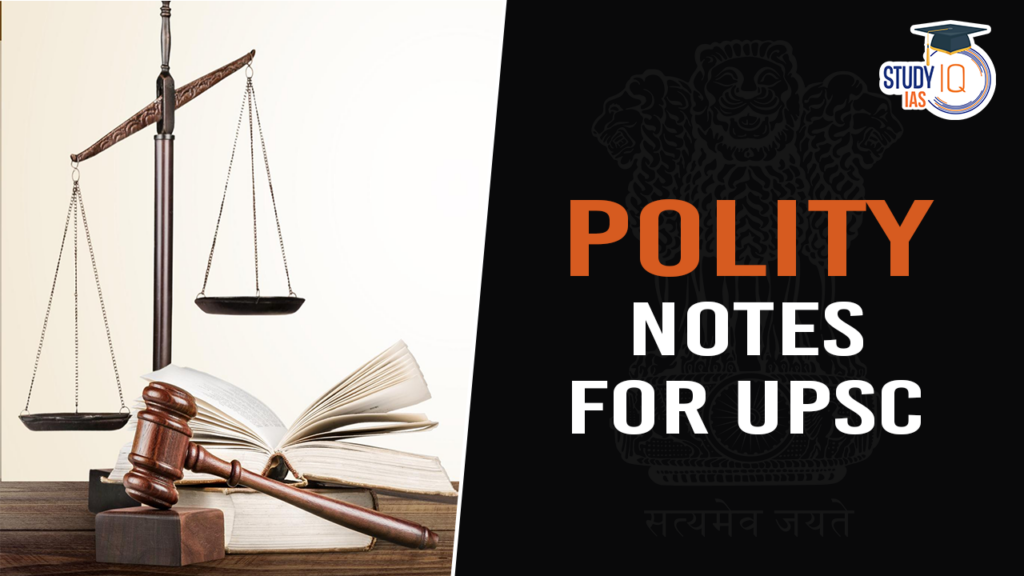
One of the key topics for the UPSC Civil Services Exam is Indian politics. All three levels of the Civil Services exam have included questions that directly relate to the constitutional framework. This article contains a topic-by-topic table of the curriculum for Indian politics for the UPSC, which may greatly assist you in covering Indian polity. You can also download our micro themes syllabus PDF of Indian polity to keep your UPSC preparation syllabus focused.
Indian Polity Notes for UPSC Prelims and Mains
UPSC Indian Polity: The entire constitutional framework and the operation of our political system are encapsulated in Indian politics. To make your preparation easier, we have divided the Indian Polity themes included in the UPSC notification into smaller subtopics. To prepare for the UPSC exam, go over each of these topics in depth. Indian Polity is a vast and complex subject, but there are a few key concepts that are essential for understanding the Indian political system. Here is a brief overview of some of the most important Indian polity notes:
Constitutional Framework Indian Polity Notes
Evolution of the Constitution
- Regulating Act 1773
- Pitts India Act 1784
- Charter Act of 1793
- Charter Act of 1813
- Charter Act of 1833
- Charter Act of 1853
- Indian Councils Act 1861
- Indian Councils Act 1892
- Indian Council Act 1909
- Government of India Act 1919
- Government of India Act 1935
Making of Constitution
Features of the Indian Constitution
- Salient Features of Constitution of India
- Borrowed Features of The Indian Constitution
- Parts of Indian Constitution
- Important Articles of Indian Constitution
- Schedules of Indian Constitution
- Preamble of Indian Constitution
Indian Union and its Territory
- Union and its Territory Constitutional Provisions
- State Reorganisation Act 1956
- Reorganisation of States/state reorganization
Citizenship
- Citizenship in India
- Overseas citizenship of India
- Citizenship amendment act
- Non-Resident Indian and person of Indian origin
- Difference Between Nationality And Citizenship
Fundamental Rights
- Fundamental Rights of Indian Constitution, (Articles 12-35)
- Article 12 and 13 of Indian Constitution
- Article 14 of Indian Constitution
- Article 15 of Indian Constitution
- Article 16 of Indian Constitution
- Mandal Commission
- Articles 17 And 18 of Indian Constitution
- Article 19 of Indian Constitution
- Article 20 of Indian Constitution
- Article 21 of Indian Constitution
- Right To Education Act 2009, Article 21A
- Right To Property
- Right to Information Act
- Right To Freedom Of Religion In India
- Writs In Indian Constitution
- Right To Freedom
- Right to Equality
- Right Against Exploitation
- Right To Privacy
- Preventive detention
Directive Principles of State Policy (DPSP)
- Directive Principles of State Policy (DPSP)
- Uniform Civil Code
- Fundamental Rights vs Directive Principles of State Policy
Fundamental Duties
Amendment of Constitution
- Amendment of the Constitution of India
- Constitution Amendment Bill
- 42nd Amendment of Indian constitution
System of Government
- Parliamentary form of government
- Comparison between Presidential and Parliamentary forms of Government
- What makes India a federal country
Executive Bodies
- Union Executive
- Presidents of India
- Powers of the President
- Impeachment of the President of India
- Veto Power of President
- Ordinance Making Power Of The President
- Vice Presidents Of India
- Prime Minister of India
- Union Council of Minister
- Cabinet Ministers Of India
- Defence Ministers of India
- Finance Ministers of India
- Education Ministers of India
- Difference Between Cabinet And Council Of Ministers
Union Legislature
- Union Legislature
- Lok Sabha
- Rajya Sabha
- Parliament of India
- Members of Parliament
- Parliament Sessions
- Parliamentary Privileges
- New Parliament Building
- Speaker of Lok Sabha
- Pro-Tem Speaker
- Chairman of Rajya Sabha
- Difference between Lok Sabha and Rajya Sabha
Parliamentary Devices, Procedures and Working
- Devices of Parliamentary Proceedings
- Zero hour in parliament
- Question hour in parliament
- Legislative Procedure in Parliament
- Money Bill
- Financial Bill
- Government Budgeting
- Demands for grants
- Appropriation Bill
- Consolidated Fund of India
- Contingency Fund of India
- Cut motions
- Lapsing of Bills
- Adjournment motion
- No Confidence Motion In Parliament
- Difference Between Union Budget And Interim Budget
- Difference Between Money Bill And Ordinary Bill
- Difference Between Interim Budget And Vote On Account
- Difference Between Money Bill And Finance Bill
Parliamentary Groups and Committees
Emergency Provisions In Indian Constitution
State Government and its Machineries
Central State Relations
Union Territories and Special Areas
Local Government
Supreme Court
- Supreme Court of India
- List of Chief Justices in India
- Important Landmark Judgments of Supreme Court
- Collegium System
- Judicial Doctrines
High Court and Subordinate Court
Other Judicial Bodies and Services
- Tribunals In India
- National Legal Services Authority (NALSA)
- Lok Adalat
- Gram Nyayalayas
- Alternative Dispute Resolution
- All India Judicial Service
Constitutional Bodies
- Constitutional Bodies
- National Commission for Scheduled Tribes (NCST)
- National Commission for Scheduled Caste (NCSC)
- National Commission for Backward Classes (NCBC)
- Union Public Service Commission (UPSC)
- State Public Service Commission (SPSC)
- Comptroller And Auditor General Of India (CAG)
- Finance Commission
- Attorney General of India
Non-Constitutional Bodies
- Non-Constitutional Bodies
- National Commission For Minorities (NCM)
- State Information Commission
- Central Information Commission
- National Human Rights Commission (NHRC)
- State Human Rights Commission
- Planning Commission
- NITI Aayog
- Central Vigilance Commission
- Special Officer for Linguistic Minority
- Lokayukta
- Enforcement Directorate
- National Highways Authority of India
- Law Commission of India
- Administrative Reforms Commission
- Delimitation Commission
Political Dynamics
- Party System In India
- Political Parties Symbols In India
- Electoral System in India
- Electoral Reforms In India
- Self Help Group
- Non-Governmental Organisation
- Criminalization of politics
Important Bills, Laws, and Acts
- Difference Between Law, Act, And Bill
- Bharatiya Nyaya Sanhita Bill 2023
- Sedition Law In India
- Delhi Services Bill 2023
- Martial Law
- Prevention Of Money Laundering Act 2002
- Whistleblower Protection Act 2014
- Prevention Of Corruption Act, 1988
- Hindu Marriage Act 1955
- Special marriage act 1954
- Protection Of Children From Sexual Offences Act (POCSO Act)
- Anti Defection Law
- Fugitive Economic Offenders Act 2018
- Representation of People Act, 1950
- Representation of Peoples Act, 1951
- Indian Penal Code
- IPC Section 108 of Indian Penal Code
Governance
International Relations
- International Organizations and their Headquarters
- Neighbouring Countries of India
- Asian countries
- G7 countries
- NATO countries
- G20 Summit
- OPEC
- ASEAN
- India-Pakistan Border Dispute
- India-China Border Dispute
- India-Nepal Border Dispute
- India-Bangladesh Border Disputes
Indian Polity Current Affairs for UPSC & PSC
- Important Reports on Indian Federalism: Rajamannar, Sarkaria and Punchhi February 21, 2026Indian federalism is one of the most dynamic and debated features of the Constitution. Though India is described as a “Union of States” under Article 1, the balance of power between the Centre and the States has evolved through constitutional practice, judicial interpretation, and several landmark committees and commissions. From the ...Read More
- List of Chief Ministers of Maharashtra From 1960 to 2026 January 28, 2026 The state of Maharashtra, one of India’s largest and most economically significant states, was formed on May 1, 1960 after the division of the Bombay State. Since its inception, Maharashtra has witnessed a rich political history shaped by visionary Chief Ministers. This article provides a comprehensive list of Chief Ministers ...Read More
- Electoral System in India 2026: SIR Update, Aadhaar Voter Tech and Women Reservation January 16, 2026India’s electoral system is the backbone of the world’s largest democracy. It governs how representatives are chosen at national, state, and local levels and ensures political participation for over 1.4 billion people. As of 2026, India’s electoral framework has evolved with advanced technology, digital electoral rolls, Aadhaar-based verification, and the ...Read More
- SLAPP Suits: Meaning, Examples, Impact on Free Speech and Democracy September 20, 2025Context: A Delhi court scrapped a gag order against journalists, reflecting the Supreme Court’s 2024 warning that powerful entities misuse SLAPP suits and pre-trial injunctions to curb free speech and public debate. Strategic Litigation Against Public Participation (SLAPP) Suits SLAPP) Suits are lawsuits (usually defamation, nuisance, or similar claims) brought by individuals, ...Read More
- Finance Commission of India, Articles and Constitutional Provisions September 20, 2025Context: The Kerala government has requested the 16th Finance Commission for supplementary grants and a temporary extra borrowing limit of 0.5% of Gross State Domestic Product (GSDP). The Government of Tamil Nadu recently hosted the 16th Finance Commission, which was chaired by Arvind Panagariya. The Commission is strategically positioned to tackle ...Read More
- High Number of Pending Cases in Supreme Court of India September 18, 2025Context: The pendency of cases in the Supreme Court has reached an all-time high of 88,417, even when the court is currently functioning with its full sanctioned judicial strength of 34 judges. Reasons Behind High Number of Pending Cases Frequent Adjournments: Approximately half of the 90 cases listed daily in district and ...Read More
- NITI Aayog: Objectives, Functions, Structure and Major Initiatives September 16, 2025Context: NITI Aayog was formed to drive long-term planning, Centre–State coordination, and structural reforms, but a decade later, it is often seen as an armchair body focused more on reports and indices than real economic transformation. Under his vision to bring all the states together as one “Team India” for a Viksit ...Read More
- Parliament of World’s Religions, Aim, Participants and Legacy September 15, 2025Context: September 11, 2025, marked 132 years since Swami Vivekananda’s historic speech at the Parliament of the World’s Religions in Chicago. What is the Parliament of World’s Religions? Parliament of World’s Religions was held in Chicago from September 11–27, 1893, as part of the World’s Columbian Exposition. Brought together representatives of major world ...Read More
- Commonwealth Parliamentary Association (CPA), Objectives and Key Activities September 15, 2025Context: Lok Sabha Speaker Om Birla inaugurated the 11th Commonwealth Parliamentary Association (CPA). About Commonwealth Parliamentary Association (CPA) Establishment: Founded in 1911 as the Empire Parliamentary Association. Renamed as the Commonwealth Parliamentary Association (CPA) in 1948. Headquarters: London, United Kingdom. Membership: Over 180 national and sub-national legislatures are members. Includes Parliaments, State Assemblies, and Provincial Legislatures. India’s ...Read More
- National Scheduled Tribe Finance and Development Corporation (NSTFDC) September 12, 2025Context: Coal India Limited and NSTFDC sign MoU to empower tribal students through Eklavya Model Residential Schools. About National Scheduled Tribe Finance and Development Corporation (NSTFDC) National Scheduled Tribe Finance and Development Corporation (NSTFDC) was set up in 2001 under the Ministry of Tribal Affairs, Government of India. Governance Managed by a Board of ...Read More
UPSC Syllabus For Indian Polity
The Civil Services Exam includes a section on politeness. Both the Prelims and Mains exams cover Indian politics. 16 questions from the UPSC Polity curriculum were directly asked in the 2020 Prelims. All three Civil Services Examination phases included questions on Polity.
Indian Polity for UPSC Prelims 2025
The UPSC Prelims Syllabus includes information on Indian politics, and we have included the UPSC Polity Syllabus 2025 for the IAS Prelims Exam below. Indian polity is an important subject for the UPSC Civil Services Examination, both Prelims and Mains. It is a vast and complex subject, but there are a few key topics that are particularly important for the UPSC Prelims syllabus.
- Polity and Governance in India
- Government of India
- Constitution of India
- Indian Political System
- Local Government
- Indian Parliament
- Indian Judiciary
- Fundamental Rights and Duties
- Centre-State Relations
Indian Polity Syllabus for UPSC Mains
The Indian Polity component is part of the General Studies Paper-II of the UPSC Mains Syllabus. The UPSC Polity Syllabus for the IAS Mains Exam must be read by candidates before they begin the course of study.
- Constitution of India
- Functions and responsibilities of the Union and the States
- Comparison of the Indian constitutional scheme with that of other countries
- Parliament and State Legislatures
- Appointment to various Constitutional posts
- Structure, Organisation and Functioning of the Executive
- Salient features of the Representation of the People’s Act
- Government policies and interventions
- Health, Education, and Human Resources
- Development Processes and the Development Industry
- Issues relating to Poverty and hunger
- Role of civil services in a Democracy
- Important aspects of governance.
Indian Polity Syllabus for UPSC Topic-Wise
Here you can check the Indian Polity Syllabus 2025 in detail:
| Topic-Wise UPSC Polity Syllabus 2025 | |
| Important Polity Topics | Polity Sub-topic |
| Constitutional Framework |
|
| System of Government |
|
| State Government |
|
| Central Government |
|
| Constitutional Bodies |
|
| Union Territories & Local Government |
|
| Non-Constitutional Bodies |
|
| Emergency Provisions |
|
| Miscellaneous |
|
| Current Affairs |
|
Indian Polity Books For UPSC Preparation
You can refer to this book for this for the UPSC Preparation:-
| UPSC Books for Indian Polity | |
| Indian Polity |
|

